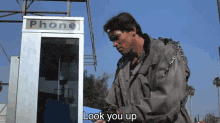By Mike Kuzma
Does your business rely on word-of-mouth referrals?
Most businesses rely on referrals. Statistically speaking, 82% of small businesses rely on word of mouth referrals as their main source of new business. When we speak to businesses, it seems like more than 95% of them rely on referrals.
If you rely on other people talking about your business, pat yourself on the back. You care about your business. You’re doing a good job. If you’re relying on that as your stream of income, your profit, the money you bring home for yourself, your family, etc., that means you have faith in yourself and your business.
And good things should come from that.
Word-of-Mouth Referrals: Key Stats and Insights
Why do we love word-of-mouth referrals so much? If you look it up online, you’ll find a flood of data that supports our love for referrals!

According to techreport.com, 92% of consumers trust word-of-mouth recommendations over advertising.
83% of consumers say they are willing to refer your business after a positive experience.
Referrals drive sales 5X… even as much as 100 times more than otherwise!
McKinsey, a huge consulting firm, says it’s the primary factor behind 20-50% of all purchasing decisions.
A sampling of Other stats (that you can easily find online):
- 49% of U.S. Shoppers Discover Brands Through Family and Friends (Miller, n.d.)
- A Single Happy Customer Can Yield Nine Referrals (Source: Oberlo)
- Referral Leads Boast a 30% Higher Conversion Rate (Source: Finances Online)
Word-of-Mouth Referrals: Essential for Your Business’ Survival
Clearly, it is crucial that you care and continue getting those word-of-mouth referrals. But did you know that most businesses are losing word-of-mouth referrals, and they don’t even know it?
When you think about it- how would they know?
If I hear about a business, I’m likely hearing it. Like actually hearing it verbally…I’m not getting a business card or the cell phone number of the business owner.
Picture this- you decide on a new restaurant when you’re visiting a town that you don’t live in, you have done all your research/got that word of mouth referral. Now you want to go there. You’re going to order takeout or you’re going to sit down with your friends or your family.
BUT- you show up and they’re not open. Or worse, they’re not even there. It doesn’t even exist. It’s happened to me a bunch. Has this ever happened to you?

They’ve done significant studies that show tons of people go to competitors and you don’t even know it in every single industry.
Here’s a common phone call that I have with business owners:
Me: That’s great that you have such a great flow of referrals. Unfortunately, we ran some data and discovered that it’s likely that you are losing quite a few referrals…
Business Owner: That can’t be! I don’t lose any referrals!
Me: How do you know that?
Business Owner: Because I get referrals all the time!

Me: I can’t argue that! I’m sure that you do- I’m just informing you that we found inaccurate data about your business that is steering your referrals to your competitors.
Business Owner: I’ve never heard of my referrals going to a competitor of mine.
Me: Do you think that a person who was referred to you that went elsewhere would contact you to tell you that?
Business Owner: Well I just don’t see how this is possible. I have no problem finding my business online.
Real-World Examples: The Impact of Losing Word-of-Mouth Referrals
Let’s pretend I’m in the Miami area and a friend tells me about a restaurant to check out called “Cuban Guys.”
So what happens? I’ll go to find them online, but I can’t find them.
Since I’m already searching for a Cuban restaurant, I easily find one of Cuban Guys’ competitors and decide to dine there.

After chowing down on someone else’s delicious Cuban cuisine- I’m excited!
I found a new gem in Miami and depending on my personality, I may be the type that tells anybody and everybody about how good that place was (I am that type of person). I may be the type of person who goes and writes and excellent 5* review online (I’m not that type of person… unless they’re good about asking…or if I’m pissed, in which case I’ll go to Yelp).
In this example, I’m now a loyal patron of this restaurant, and the owner of Cuban Guys will never know. Not only has he lost out on a referral, but he’s lost out on the referrals that I give to other people.
Something that I won’t do after eating at a restaurant different from Cuban Guys, is searching for Cuban Guys after I’ve already gone elsewhere.
Can you imagine searching for this place after failing the first time, then finding them, and having the nerve to contact them to say, “Guess what? I couldn’t find you online so I went to your competitor and now I’m a loyal fan of their businesses instead of yours. I’ve also told the person that referred your business to me that they should check out your competitor.”
Of course you can’t, because it’s absurd.
How can a business avoid this problem?
You need to know how you are listed online.
If you’re not in control of how your business looks online, someone else is.
It is free to find how you look across the internet….if you know the right place to search.
4 Easy Steps to Improve Your Online Presence and Retain Referrals
- Take advantage of your Google Business Profile (or GBP- also formally known as GMB):

If you don’t show up in a Google search when searching for your business name, you have a problem.
If that’s the case, don’t worry. It’s easy to fix.
If you don’t have a Google Business Profile, get one. Now!
If you do- is it accurate? If it’s not, fix this now before reading any further!
Bottom line- if you can’t find yourself on Google…please, just contact me. I’ll give you a free consultation. It’s killing you.
- Incognito Mode
“I know how I look online. I just did a Google search and I found myself- no problem.”

Not so fast, Mister Googly Pants.
When you do a search, Google’s likely going to show you what you want to see because you’re already logged in on the account that owns the business, and/or you’ve already searched your business and clicked on it so they’re going to show you your business first.
It’s better if you grab someone else’s phone to do the search. And when you think that you know exactly what to look for, ask that person what they would look up. Have them do the search…if you’re like me, you’ll likely be surprised.
If that’s not possible, go to incognito mode on your browser to look up your business.
- Non-Google Browser Search
Not everyone goes to Google!
Plenty of people that I know use Brave as a browser, or DuckDuckGo, Bing or maybe even something crazy I’ve never heard of.
It’s important that you’re not just using Google to search.
It’s also important that you’re not just searching for your business name exactly how you would write it because there could be typos or common search names (doctor example- does searching for your name show you your business?) that people are searching for.
- Business Listings and Business Directories
Business listings are online directories containing essential information about your business.

Think of the old phone book or yellowpages.
These directories include key information that people need to research, contact, and locate your business.
- Name
- Address
- Phone Number
- Website
Some online directories will include additional information like hours of operation, social media sites and more.
To start, you’ll want to verify that this information is accurate across some major business directories.
Are business directories really that important??
- Uber
- Waze
- Alexa
- Apple
Sound familiar?
Fun Fact #1:
Uber, Apple Maps, Alexa and Waze are also business directories!
Have you submitted your business information to these? If you haven’t, they’re likely not there.

Maybe you haven’t heard of Foursquare…but 9 MILLION people in the USA use their directory. CitySearch? 447,100 people go there. Over 600,000 people go to eLocal for business listing information.
MapQuest? Over 30 million. TripAdvisor? Over 105 million.
Navigation systems also need business information to show it to drivers using their car’s GPS. Do BMW, Audi and Ford have your business information accurately updated?
Fun Fact #2:
Most directories are open to 3rd parties (random people including your competitors) making changes to them.
When business directories are not taking data submitted to them directly, they’re just copying it from another site.

Business directories want to share your information- whether you want them to or not.
Why? The more businesses that they have, the more important their site is.
So if you have inaccurate information anywhere- it’s possibly going to replicate all over the internet.
Free Tools Available to Check Your Listings
Here’s a few sites that will provide basic and free audits on how your business listings currently look.
Note- not all of the directories listed are relevant to your industry.
Now, these all have different business directories. Some of them are not going to be relevant. If you’d like for us to do a search for you, we’ll do it for free. We’ll generate a report for you and it’ll include that information along with other actionable insights on your current online footprint.

If you’ve stayed this long, I want to give you a hug. Hopefully, you got something valuable here.
If you didn’t, I’m not sure you read the article because this is EXTREMELY IMPORTANT for ALL BUSINESSES!
Until next time!
